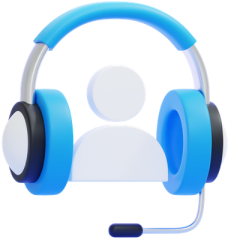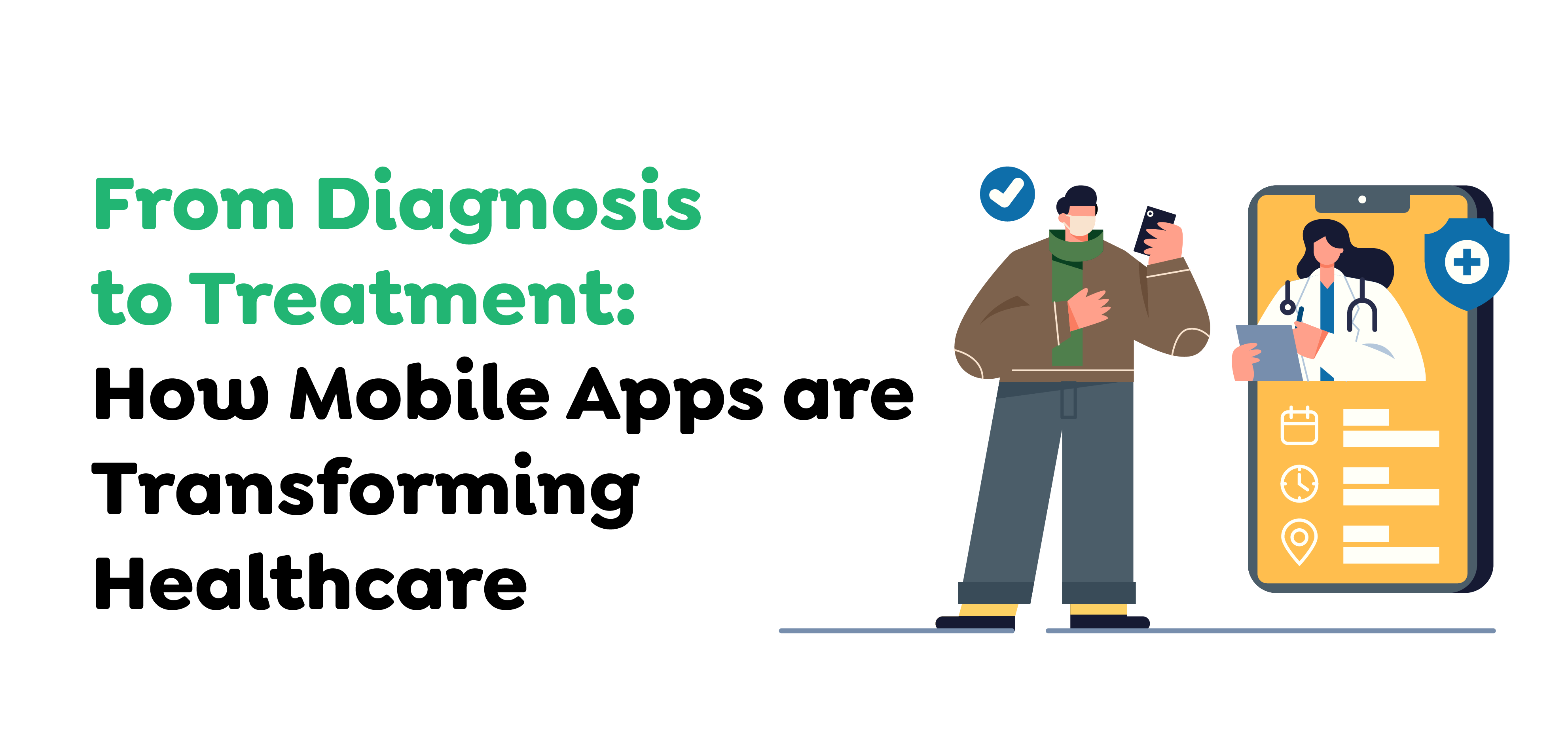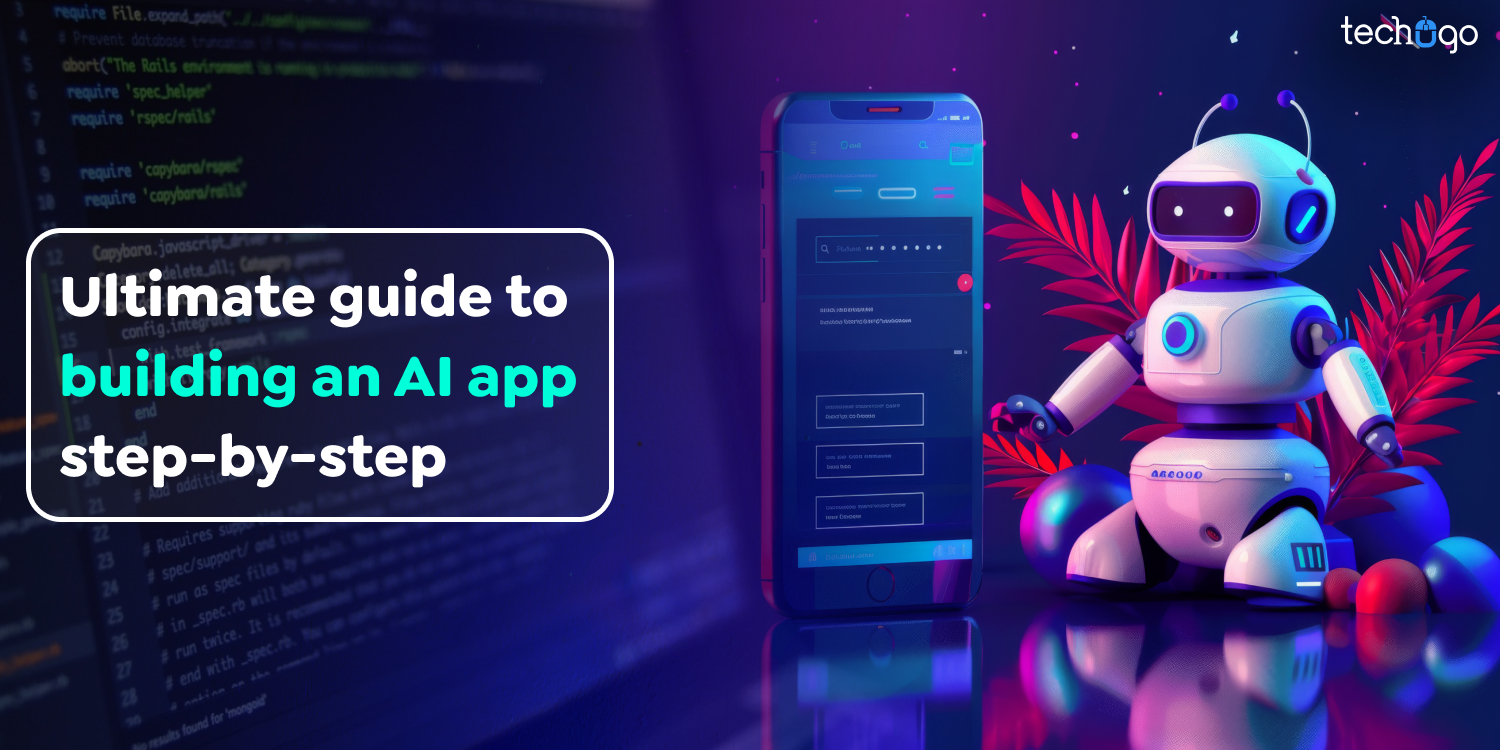15 Jul 2024
The Role of Mobile Apps in Canada’s Healthcare Industry
Matthew Connor
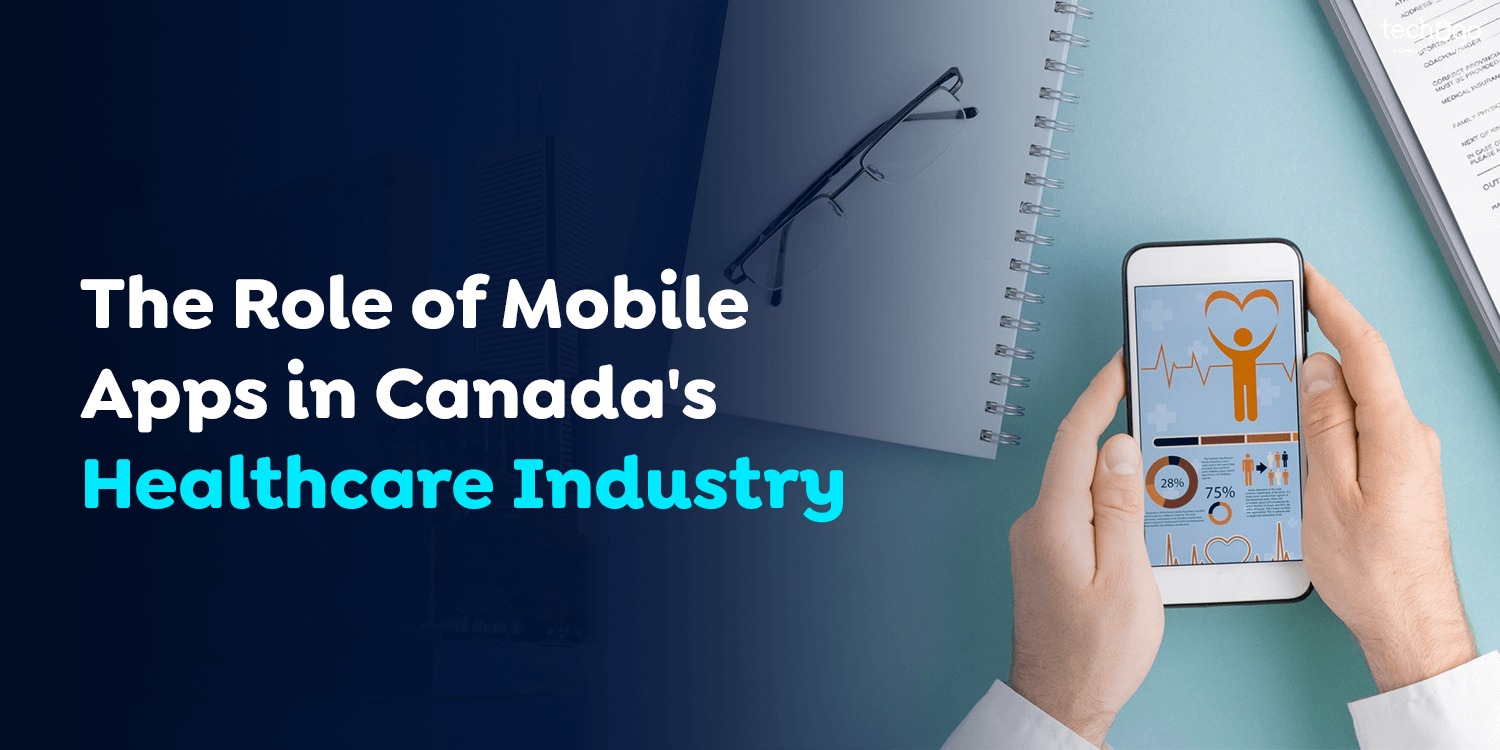
In the digital age, our dependence on smart devices has grown exponentially. Smartphones, in particular, have become essential tools for managing our daily lives—organizing schedules, streamlining business operations, staying connected through social media, and even booking healthcare appointments. Due to this, there has been advancement of mobile apps in healthcare, and therefore, application development has become the core.
Technology has continued to progress, especially in the healthcare domain, and mobile app development has been part of this action for the last few years. Developing new and effective methods of fighting COVID-19 has contributed to the constant growth of healthcare mobile applications.
Firstly, let’s discover how mobile apps in healthcare are improving patient care.
Enhancing Patient Care Through Healthcare Mobile Apps
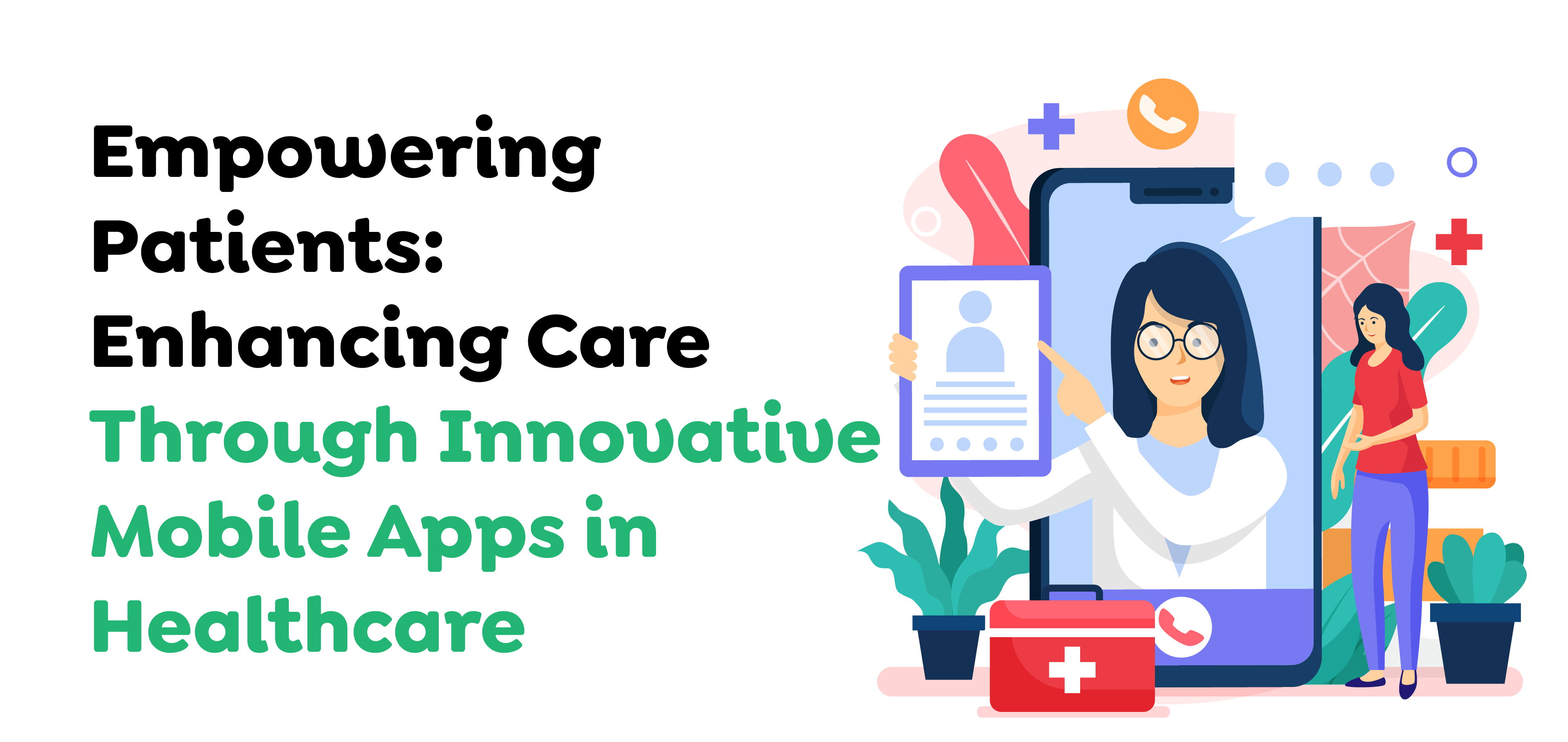
COVID-19 has adversely affected many sectors; however, it has fastened the digitization process in different sectors, such as healthcare. This shift towards digital solutions has greatly enhanced patient care. Moreover, it guarantees the preservation of health and enriches the user’s experience through mobile apps in healthcare. These applications cover nearly every aspect, from buying medical products and developing a healthy lifestyle to properly selecting a doctor. Their potential can be significant because healthcare apps helps patients in the provision of quick access to information.
Patients can get doctors, make appointments, and view medical test results from home using mobile apps in healthcare. In the present study concerning the COVID-19 pandemic, these applications ensured appointments with doctors and nutritionists relating to health issues and consulting through video calls. Lifestyle and health monitoring apps also aid people in routinely keeping track of their health. Evidently, mobile apps in healthcare have proven themselves to be an inseparable necessity for patients.
Moreover, such applications are useful not only for patients but also help doctors organize the data. Mobile Apps can help healthcare professionals gather and save individual information, thus eradicating mistakes in paperwork. Such opportunities also include enabling clients to upload their insurance cards and other necessary details through such apps, thus reducing enormous workloads on medical practitioners.
Next, let’s explore how app development in healthcare benefits healthcare professionals and doctors.
Benefits of App Development for Doctors and Medical Professionals

Mobile app development in the healthcare industry has significantly eased the workload of medical professionals. The mobile apps in healthcare encompass providing support during emergencies, monitoring health conditions, managing administrative tasks, handling records and documentation, tracking treatment progress, and contributing to regular patient contacts.
The overall organization of healthcare facilities that adopt mobile app services can better manage emergency incidences. In an emergency, the app alerts doctors and provides all important data to their gadgets. The information provided to these doctors is timely, so they can prepare in advance instead of waiting for the occupants. Also, mobile applications in healthcare facilitate documentation and the delivery of treatments since they enhance the efficiency of procedures, which is especially crucial in cases of emergencies.
Moreover, according to research, about 92% of medical practitioners mentioned that the applications introduced in healthcare might have a favourable outcome on patients’ health. Also, 80% of physicians consider using mobile technology in healthcare to improve patients’ care.
This shows that the proper functioning of a healthcare system cannot leave out the aspect of mobile apps.
After learning the benefits of healthcare app development, let’s explore the different types of mobile apps in healthcare.
Types of Mobile Applications for Healthcare
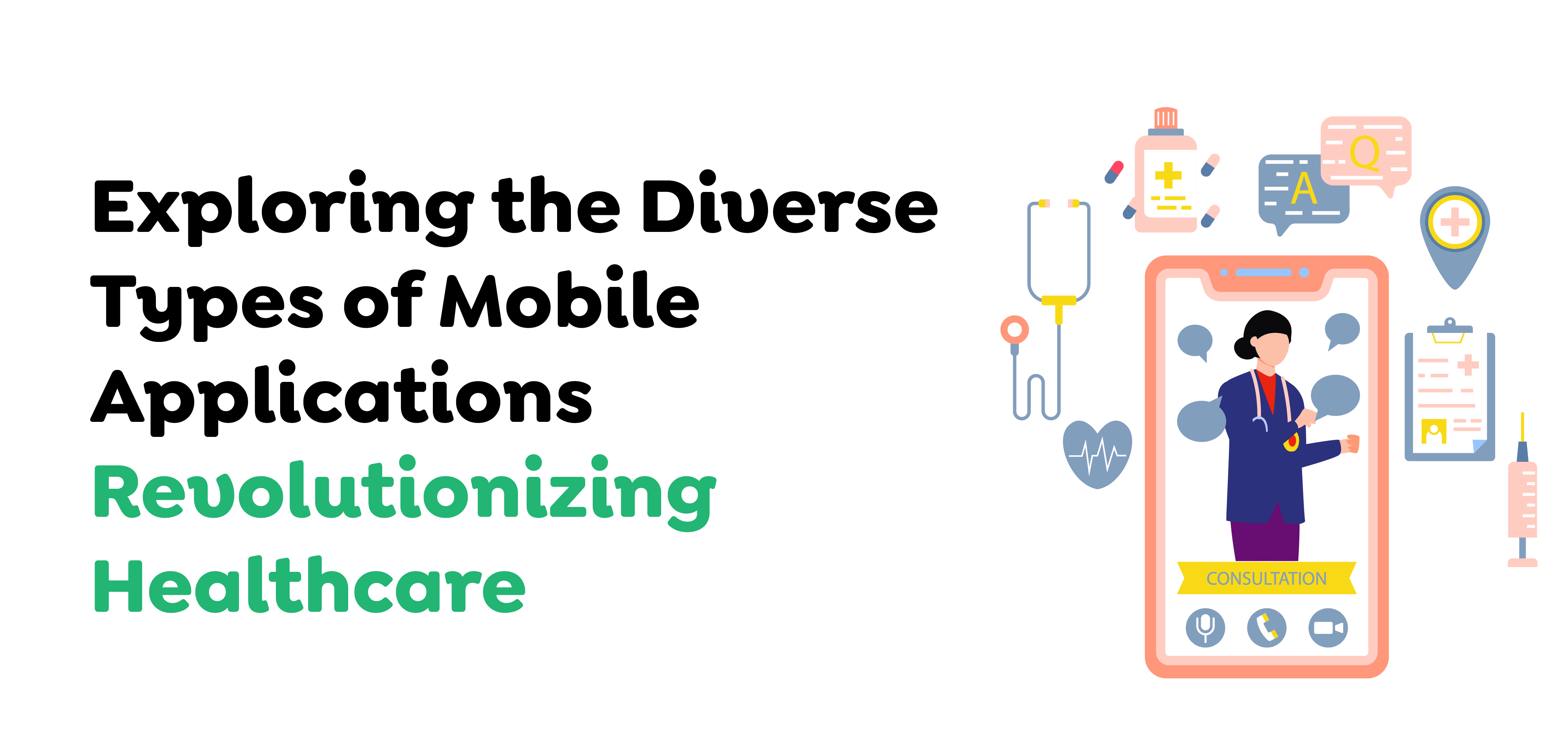
When integrating technologies associated with mobile healthcare, it is important to establish and create applications designed with the assistance of a healthcare mobile app development company, each built for a particular purpose. Mobile apps in healthcare can be grouped into four main categories. It includes healthcare workers, clients or end users, and care facilities such as hospitals or clinics. It is now appropriate to discuss some of the most used forms of mobile apps in healthcare.
Medical Apps for Patients
- Fitness and Wellness Apps: Fitness and wellness applications enable users to record their exercises and how to improve them. They can incorporate aspects like steps taken per day, an exercise and diet regime, calorie counting, and assessment of performance.
- Self-Diagnosis Solutions: Many apps let the user mention some symptoms and get probable causes or diseases one has. Such applications offer the first level of diagnosis and advise people whether to see a doctor.
- Reminder Assistant Apps: These apps assist patients in managing their medicines because they can be programmed to remind them to take the pills. They can also monitor the doses taken and remind the patient at what time the prescription is depleted.
- Addiction Recovery Apps: People use disorder recovery applications, which are helpful to users who are in recovery from drug and alcohol addiction. They offer aspects like the ability to track progress and read materials. Additionally, it motivates them to go on and get connected with other people who also struggle with the disease.
- Mental Health Apps: Mental health apps are applications that provide support to users regarding their mental health problems. They may comprise meditation aides, mood logs, concepts derived from CBT, and contact information for therapists and counsellors.
- Diet Tracking Apps: Different applications assist people in tracking the meals they consume and the calories they take. They provide options such as meal choices, recipes for meals, and recording of progress.
Apps for Medical Institutions
- Scheduling and Appointment Solutions: Appointments are schedules that facilitate booking for medical institutions. They enable patients to book appointments online and provide alerts, which can help to ensure proper rationing of the appointments.
- Billing: Billing applications make interactions between patients and health service providers much more accessible. They deal with billing, insurance claims, and payment gateways. Hence, they eliminate the workload of billing and insurance claims while enhancing efficient payments.
- Clinical Assistance Apps with EHR and EMR Access: Clinical assistance apps connect Electronic Health Records (EHR) and Electronic Medical Records (EMR) to healthcare experts. They allow doctors to examine patient records, test results, and treatment plans, thus ensuring a more proper patient-handling approach.
- Inventory Management: Supply chain solutions involve inventory control applications used by medical units to track their inventory, drugs, and equipment. They help ensure that those means are available when they are needed and minimize expenditures.
Apps for Healthcare Professionals
- Remote Monitoring: Some of the aspects that have made remote monitoring possible include the use of mobile apps in healthcare. Moreover, healthcare personnel can monitor patients’ vital signs and other health details without physically getting involved. It is preferable for subsequent care of chronic conditions and postoperative treatment; the patient can feed data back to the doctor in real time.
- Appointment Management Solutions: These are apps that help doctors efficiently schedule appointments. Other possibilities include calendar connection, patient reminders, and rescheduling, which enhance a doctor’s schedule and reduce time consumption.
- Telemedicine: Telemedicine is also another application whose main role is to let patients and healthcare providers engage in conversation through communication. Some of the services they offer include video consultation and e-prescription to boost the process of accessing health services. Surprisingly, these Apps were very useful when COVID-19 came knocking with its impacts on patient care.
Due to necessity, different mobile apps in healthcare are used to meet the requirements of people and various levels of healthcare systems. These apps improve the effectiveness, availability, and quality of healthcare delivery, hence leading to the transformation of healthcare.
Moving forward, let’s discover how different mobile apps in healthcare are revolutionizing healthcare.
Also Read – Caring at Fingertips: Revolutionizing Healthcare with Your Innovative App
How Are Medical Mobile Applications Revolutionizing Healthcare?
Mobile applications have become a revolutionary tool in healthcare, changing everything from how we communicate to how we collaborate. Here are the positive changes medical mobile applications make in healthcare specialists’ work.
-
-
Patient Monitoring:
In today’s digital healthcare world, various health smart devices are used. Fitness trackers are synchronized with smartphone health applications to track activities such as steps, sleep, and diet intake. Wearable technology assists patients and doctors by giving access to electronic health records and the history of the patient’s illness. Also, new devices for measuring essential health indicators such as blood pressure, pulse, and glucose levels improve the diagnostics and therapy processes.
-
-
Instant Healthcare Access:
It helps one to no longer have to attend a doctor’s physical clinic to make an appointment. This element includes options like finding a doctor and making an appointment through a healthcare mobile application. Some of the most advanced applications permit patients to type in general health questions and receive answers from doctors at any time of the day. Moreover, this can all be done without making an appointment because timely advice and care are very important.
-
Streamlined Payments:
Another advantage of developing a healthcare app is that payment is made easier. Earlier, patients had to spend considerable time standing in queues to pay their bills. Today, there are secure methods for mobile payment that facilitate bill payments from patients’ or healthcare facilities’ accounts.
-
Accessible Home Healthcare:
Modern advancements in technology have impacted home healthcare service delivery. Mobile applications that can be used by the patient enable them to choose home care. Thus, helping elderly people, disabled people, post-surgery patients, and chronic disease patients. Technology such as real-time helps to identify the medical equipment, medication, and other healthcare products needed at home.
-
Accurate Diagnoses:
The combination of machine learning and data analysis in the healthcare sector has decreased medical mistakes. Technicality and throughput produce detailed records, improving the reliability of the medical diagnosis and therapies.
-
Convenient Access to Medical Reports:
Mobile apps in healthcare allow patients and doctors access to medical reports anytime and anywhere. Such a feature proves its value when a patient has to visit several doctors, and such possibility dispenses medical decisions on the basis of available information.
-
Informed Doctor Selection:
Patients make appropriate decisions for their healthcare providers through the ratings, costs, and expertise details, as well as from other patients’ experiences.
The use of mobile apps in healthcare tracks patients’ conditions and vital signs to monitor the progress of patients who are being treated at home. Moreover, it provides real-time medical care service to the public, enables patients to make instant payments for their health care needs, gives treatment that is accessible at home, provides an accurate diagnosis of diseases, offers clients easy access to medical reports and enables patients to select the right doctors. These developments have opened a new page for creating a more effective, focused patient medical system.
Now, let’s delve into why Techugo is the right choice for you when developing mobile apps in healthcare.
Also Read – How AI is helping the entire healthcare industry
How Can Techugo Assist You in Your Mobile App Development Journey?
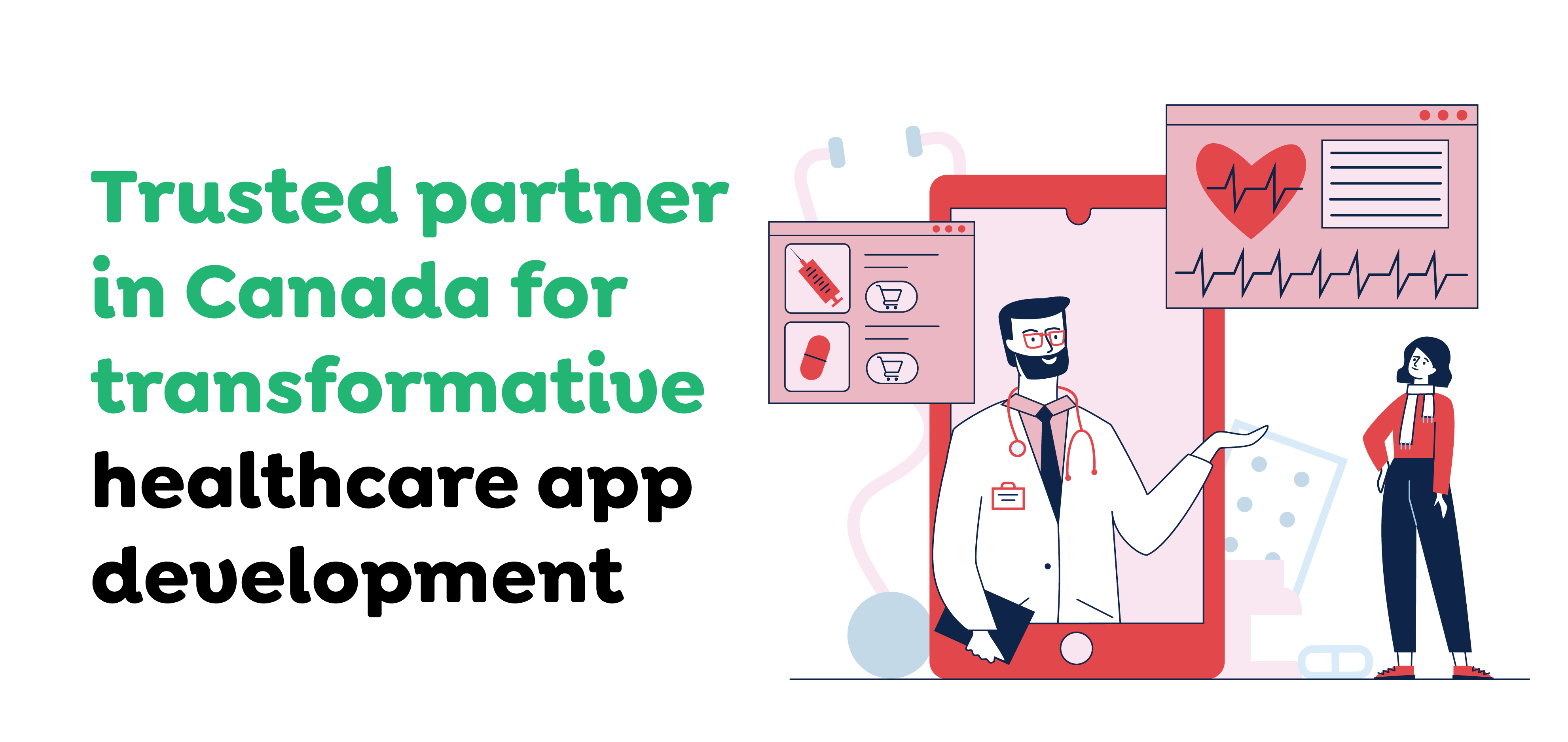
Techugo, a mobile app development company in Canada, creates exceptional mobile applications that meet the requirements of the healthcare industry. The goal is to develop customer-focused solutions that can assist in delivering patient care and improving operations. At Techugo, we know the value of putting the user first and applying this knowledge to our apps, making them intuitive for the patient and any healthcare professional.
Techugo provides end-to-end solutions designed to suit the client’s needs from the ideation stage to the application delivery stage. Being in close touch with the clients, our team identifies their problems and objectives. Additionally, we focus on delivering efficient solutions by applying the most effective technologies and methodologies of modern mobile application development. Whether telemedicine software or secure healthcare data management, Techugo is devoted to ensuring that different healthcare delivery solutions are developed to the highest standard and effectively promote positive changes in the practice.
If you are planning to venture into mobile app development in healthcare or wish to learn about the possibilities of mHealth technology, Techugo is your go-to company.
In A Nutshell!
In conclusion, mobile apps in healthcare signal a radical change rarely seen in the healthcare industry, resulting in efficiency, convenience, and ease of access. Apart from transforming conventional patient care by offering remote monitoring, quick access to facilities and services, and improving the payment method, these applications have given people the power to take charge of their health. From precise diagnosis and simple possibilities to access the patient’s document to the selection of the physician of the client’s choice, the applications promote patient-oriented strategies.
However, if many firms are investing in such a mobility solution, then Techugo is the right choice for you, which is a flexible mobile app development company in Canada that builds mobile apps in healthcare that address various sectors of healthcare. That is why, through its mastery of modern technologies and its focus on healthcare market trends, Techugo is ready to influence the healthcare sector’s evolution. These developments illustrate how mobile technology can enhance medical practices, enhance the expected patient outcomes, and positively impact the modern digital healthcare market propositions.
Get in touch with us to transform your healthcare app idea into a reality and change the healthcare sector.
Get In touch
We are excited to here from you and let’s start something special Together. Call Us for any inquiry.
Write us
sales@techugo.caJust a call away
About you
